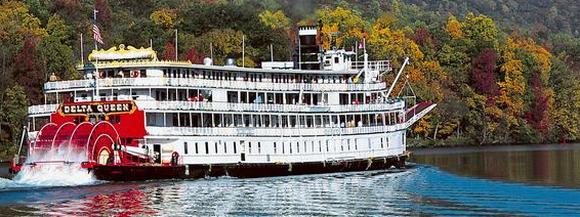 On the same day that I heard the news of the horrific fire on the dive boat Conception which killed 34 passengers and crew, I also saw an article attacking the safety waivers granted to the riverboat Delta Queen. It raised the question, do the Delta Queen fire safety exemptions make too many compromises? Should the old riverboat be allowed to operate without fully meeting the current regs? On the other hand, the dive boat Conception and boats like her, met and meet all the current regulations, and still, the Conception turned out to be a death trap.
On the same day that I heard the news of the horrific fire on the dive boat Conception which killed 34 passengers and crew, I also saw an article attacking the safety waivers granted to the riverboat Delta Queen. It raised the question, do the Delta Queen fire safety exemptions make too many compromises? Should the old riverboat be allowed to operate without fully meeting the current regs? On the other hand, the dive boat Conception and boats like her, met and meet all the current regulations, and still, the Conception turned out to be a death trap.
The Delta Queen is a 1927 built passenger riverboat with a long and storied history. She has a steel hull while her deckhouse is wood supported by a steel frame. Because of the wood in her deckhouse, she doesn’t meet the Saftey of Life at Sea (SOLAS) structural fire protection standards. For roughly 40 years, between 1966 and 2007, she was allowed to operate with a waiver of the SOLAS fire protection regulations. Her last exemption ran out in 2008, and she was laid up and then turned into a hotel. Her sister vessel, the Delta King, has been a floating hotel in Sacramento, CA for the last 30 years.
As a floating hotel, the Delta Queen meets all the rules. The problem is only when she operates as a riverboat at night. If she had the capacity for only 50 overnight passengers she would meet the rules. She could operate with 150 passengers during daylight and meet the rules. Only with a full complement of passengers at night does she fail the SOLAS standards.
The Queen is undergoing a $5 million dollar restoration which includes the replacement of her boilers and significant safety upgrades. Nevertheless, she still has the same wooden deckhouse that she has had for the last 92 years.
The dive boat Conception and other dive boats like her, are also built of wood, but they meet the regs because they are smaller and carry fewer passengers.
But what of the Conception? Whereas the Delta Queen can accommodate around 170 passengers at night in comfortable cabins with good access, the Conception could legally cram up to 46 people in double and triple bunk beds in the very bottom of the boat with only one narrow stairway to the upper decks. The Conception met the rules because she slept fewer than 50 people. Meeting the rules didn’t save her passengers from horrible deaths, unfortunately.
The old cliche is that the “devil is in the details.” I can understand the objections to granting the Delta Queen SOLAS safety exemptions, although I may not agree. Between the dive boats which met the regs and the riverboat which does not, I would much feel much safer on the riverboat.

Did the CONCEPTION have any lithium ion batteries on board — either in the engine room or as part of the outfitting, or perhaps in a passenger’s baggage?
The problem with charging the electronic devices is that they need a flame proof area so they dont ignite the surrounding wood.
The delta queen has true cabins that dont require passengers to climb out of a tiny hatch. As long as the delta queen has sprinklers for fire suppression, there shouldnt be an issue.
At first glance the two situations seem quite different; Conception had a ridiculously implausible emergency exit arrangement while egress for Delta Queen passengers is provided on an almost individual basis. But after the exit, whither to? A dark Mississippi at night, maybe in a PFD?
It seems individual odds of survival on the steam boat would be better but I suppose the total fatalities in a worst-case scenario could still easily exceed those on the dive boat.
As a practical matter, diligent watch-keeping might allow the Delta Queen to safely support 150 sleepers. Unfortunately human nature makes that unlikely (actually impossible as a matter of reality), as we’ve seen time and again– sadly very recently on Conception.
I don’t understand Mr. Bostrom’s assertion that ” diligent watch-keeping is unlikely”. Standing the watch is a time-honored task that should be approached always with “diligence,” especially on the water and especially with the public in your charge. The whole thing is tragic, but there is no substitute for an alert sentry, if that, indeed, figured into the equation.